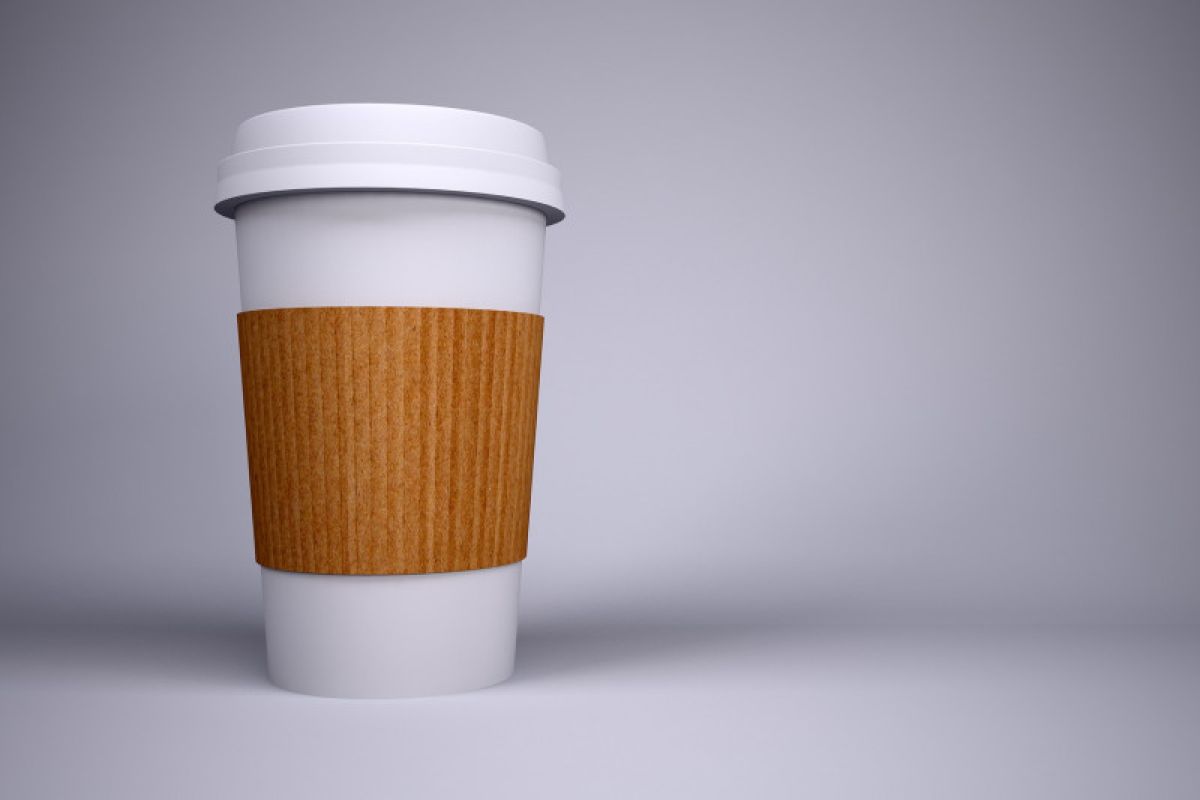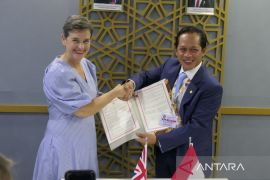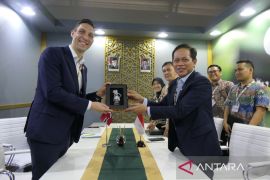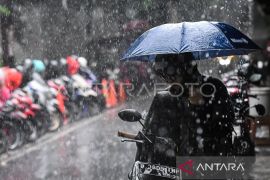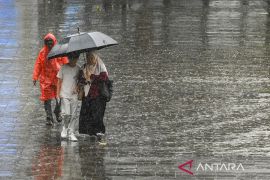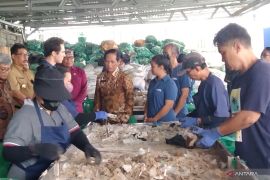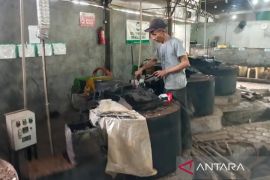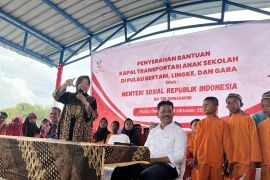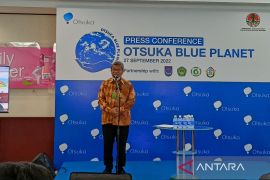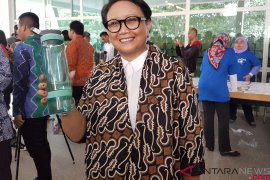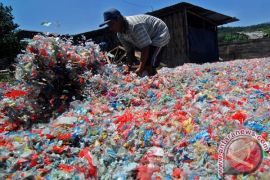Behind this phenomenon, there is an inevitable threat to environmental sustainability. This is related to the use of plastic packaging for food and beverage containers.
Packaging waste made of plastic is mostly produced by humans and has the potential to disrupt environmental sustainability.
The World Economic Forum 2020 estimates that the amount of plastic waste will swell from 260 million tons to 460 million tons per year by 2030.
To reduce the use of plastic packaging, one of the alternative materials chosen is paper. Unfortunately, food and beverage packaging paper that is currently widely used often contains a plastic layer on the inside to prevent leakage.
The process of separating paper from the plastic layer has a high level of difficulty, therefore this can be another threat to environmental sustainability. With the increasing trend of coffee among young Indonesians, the use of plastic-coated paper cups may also increase in the future.
Related news: Four social institutions launch pilots to tackle marine debris
Related news: Plastic waste management drives development of circular economy: govt
Paper cup
The United Nations Environment Program (UNEP) predicted that by 2050 there will be more plastic in the oceans than fish. Most plastics are not biodegradable, said Founder of The Earthkeeper Indonesia Teguh Handoko in a virtual discussion, Thursday (Aug 19).
It takes more than 400 years for plastic to degrade, and it will never be completely degraded, but shattered into small pieces that can contaminate marine life and harm humans.
The high amount of plastic waste is inseparable from the lifestyle of people using plastic to package food and beverages.
"One of the industries that use plastic packaging a lot are coffee shops. Indeed, not all food and beverages are packaged or served in plastic packaging, some are packaged using paper containers or cups. However, most paper cups in Indonesia currently have a plastic layer on them,” Handoko remarked.
A poll conducted by The Earthkeeper Indonesia on coffee connoisseurs in Jakarta showed that 6 out of 10 participants admitted they visit their favorite coffee shop at least once a week to enjoy coffee.
Within a week, the majority of participants admitted to using at least 1 to 2 plastic cups when buying their favorite iced coffee. Most of them admitted that they did not separate organic and non-organic waste when disposing of their coffee packaging because they did not know about proper waste disposal procedures.
Meanwhile, on a global scale, there is an increase in the production of paper cups by three to five percent each year. The highest growth rate occurs in the Asia Pacific region.
Unfortunately, of the more than 320 billion paper cups produced worldwide each year, less than one percent is recycled due to the difficulty of separating paper from the plastic layer attached to the paper cup.
Data obtained by Foopak from LIPI shows that 96 percent of food delivery service providers in Indonesia use plastic packaging, Foopak Asia Pulp & Paper's Product Manager Benny Chiadarma explained.
"To fulfill our commitment in delivering more environmentally friendly packaging, our company presents the latest innovation, called Foopak Bio Natura," Chiadarma explained.
Foopak Bio Natura is a special paper for food and beverages that is plastic-free, recyclable, and compostable either through industrial processes or at home, he continued.
Foopak Bio Natura is also guaranteed to be food grade, heat resistant (microwave and oven safe), and only uses quality paper materials from Industrial Plantation Forests (HTI) areas whose supply chains have also been certified both nationally and internationally, he later explained.
Using only a water-based coating, Foopak Bio Natura can be recycled without special treatment. It has also been proven to be easier to reprocess into recycled paper and faster to compost within 12 to 24 weeks both through industrial and home processes.
In addition to being more environmentally friendly, Foopak Bio Natura's packaging products are also tested to be sterile from harmful compounds and free of PFAS.
Foopak also always guarantees the halalness of its products by conducting strict monitoring starting from the raw materials used, production equipment used, storage methods, and distribution.
On the other hand, Anomali Coffee as a curator of Indonesian coffee Nusantara, favored by coffee connoisseurs, especially young people in the country, utilizes its market share to help educate Indonesians about the importance of being an environmentally friendly people.
"Anomali Coffee is always committed to supporting environmental conservation efforts by minimizing the use of plastic and using paper packaging," Anomali Coffee Business Development Rezha Ahmad conveyed.
Collaboration
Coinciding with the 76th Independence Day of the Republic of Indonesia, three pioneer institutions in their respective fields, namely Foopak Bio Natura, Anomali Coffee, and Earth Keepers Indonesia, took up the initiative to present the #NgopiMembumi movement.
The movement aims to liberate Indonesia from plastic waste by uniting an earthly lifestyle, especially in the coffee industry, through the use of plastic-free, recyclable, compostable, and biodegradable food and beverage packaging in Indonesia.
Through the collaboration, Anomali Coffee became the first F&B industry player in Indonesia to use plastic-free, recyclable, compostable, and biodegradable food and beverage packaging.
"With this step, we want to show the wider community, especially young coffee lovers that an environmentally friendly lifestyle is very easy to apply in our daily lives, and can be started from simple things such as using easier food and beverage packaging," Ahmad said.
The three entities want to encourage the use of food and beverage packaging that is easier to process into recycled paper and faster to compost as a solution to the problem of the low recycling rate of paper cups in Indonesia.
The three collaborators hope that the Indonesian people, especially coffee lovers and culinary business people, can take an active role in implementing a responsible and environmentally friendly lifestyle to carry out a plastic waste-free lifestyle in Indonesia.
Related news: Putting the lid on plastic waste from e-commerce packaging
Related news: Indonesia launches radical action plan to curtail plastic waste
Translator: Maria P, Resinta S
Editor: Sri Haryati
Copyright © ANTARA 2021
